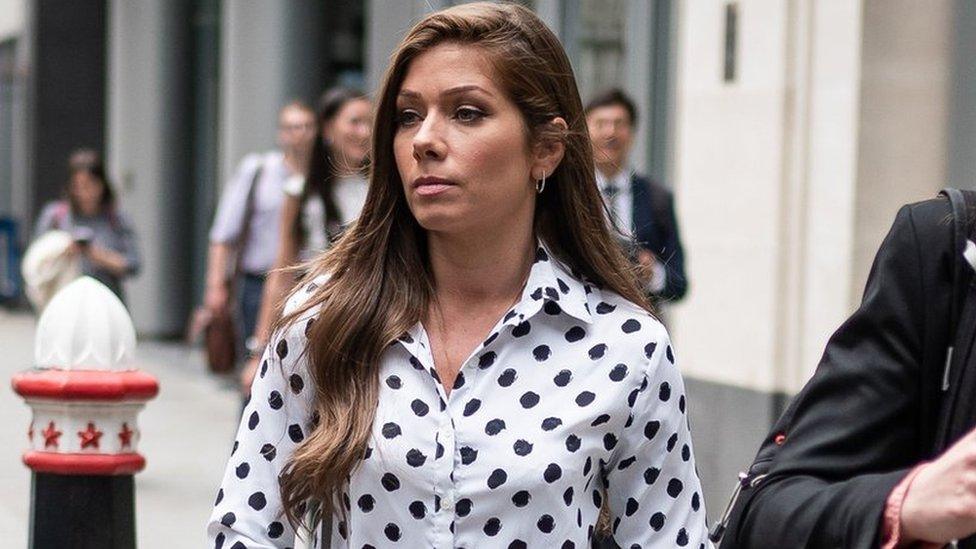Hacking trial: Privacy cases had 'catastrophic effects' on Mirror Group
- Published
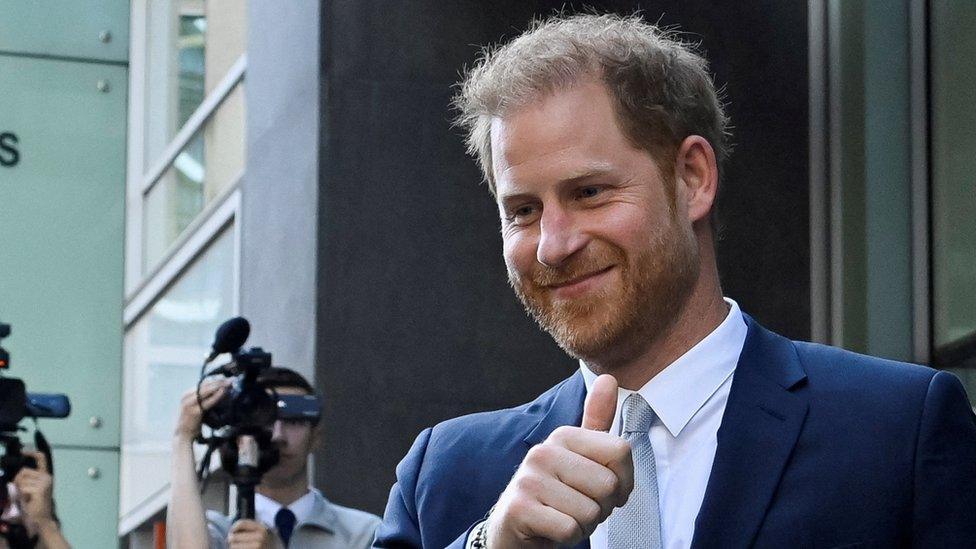
Prince Harry's privacy case is due to finish this week
Previous privacy cases brought against Mirror newspapers have had "catastrophic effects" on its publisher, the High Court has heard.
In closing submissions in Prince Harry's privacy case, a barrister for Mirror Group Newspapers (MGN) said it was facing "rocket-propelled litigation" after losing a former case.
The publisher claimed to have paid more than £100m in damages and legal costs.
Andrew Green KC said Prince Harry's case was "entirely speculative".
He admitted the actions of journalists in the past had been "reprehensible" but current claims had been "wildly overstated."
The Duke of Sussex's case had not identified a single example of his phone being hacked, he said.
Mr Green said the prince had been persuaded to sue after meeting the barrister David Sherborne at a summer party hosted by Elton John in the south of France and asking how he could bring to an end his harassment by the press.
Despite claiming in court he had suffered long-term distress at stories written about him, he also had not read "virtually any of the articles at the time," the barrister said.
The current trial follows a previous landmark judgement in 2015 in a case brought by the Coronation Street actor Shobna Gulati and other well-known people.
This found evidence of "widespread, institutionalised and long-standing" phone hacking at the Mirror newspapers.
Andrew Green accepted this judgement had been "excoriating" and that MGN had admitted liability for much of what happened.
But he went on to argue that it had led to prominent people who had successfully made claims telling their friends they should go and see solicitors.
The 2015 case had been based on strong evidence, including the accounts of whistleblowing journalists and phone call records, he said.
But the latest case was so "formulaic" that a statement of the impact of press intrusion on Prince Harry had wrongly used the word "she" instead of "he".
The claims had been "cut and pasted without any real thought", he said.
Mr Green also criticised the role of the former journalist Graham Johnson who was convicted of phone hacking and has now switched sides to help those taking on the newspapers.
He had written stories on his own website to create a "shop window" for lawyers wanting to sue in privacy cases.
There was nothing "improper" in this, Mr Green said, but it raised doubts about the reliability of his evidence.
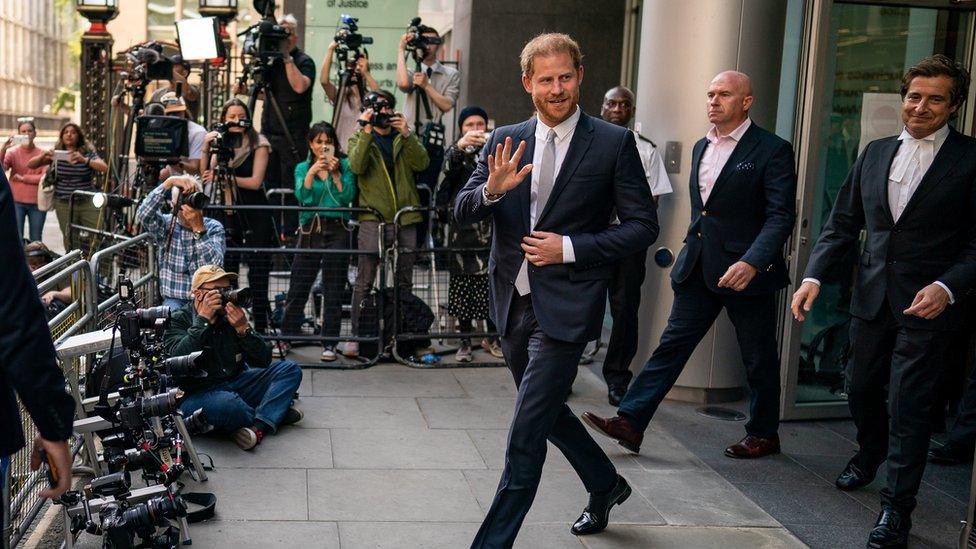
Prince Harry gave evidence at the hearing in early June
The Duke of Sussex is one of four claimants, the others are the Coronation Street actors Nikki Sanderson and Michael Turner, and Fiona Wightman the ex-wife of the comedian Paul Whitehouse.
They have been put forward as test cases by lawyers attempting to widen the legal battle against MGN following the successful 2015 case.
However Andrew Green said aside from Prince Harry, there were also fatal weaknesses in the other three cases.
He said there was a total absence of any documentary evidence Fiona Wightman's phone had been hacked, and if it had, stories about her would have been more accurate than they were.
Ms Wightman became the subject of press interest because of the collapse of her marriage to Paul Whitehouse, and her cancer diagnosis in 2000.
Mr Green did accept that there were documents suggesting an attempt was made to carry out "two reprehensible blags" to get her medical records by a private investigator, Christine Hart, paid by MGN.
He said Fiona Whiteman should receive "a fraction" of the damages she is asking for.
Nikki Sanderson, who played the hairdresser Candice Stowe in Coronation Street, is suing for press intrusion relating to dozens of newspaper stories.
She was "making a claim for hacking from 1999 to 2003 when she now couldn't remember her phone numbers during that four year period," Andrew Green told the judge, Mr Justice Fancourt.
In the case of Michael Turner who played Kevin Webster, a mechanic, on Coronation Street, there was no evidence journalists had his number and payments to private investigators appeared to relate to a different person, also called Mike Turner.
The court heard there were more than 100 claims waiting in the wings should these succeed.
MGN, a company valued at less than £250m, has now paid £105m in damages and legal costs.
Following final submissions the case finishes this week but the judgement is expected to take months.
Related topics
- Published20 June 2023
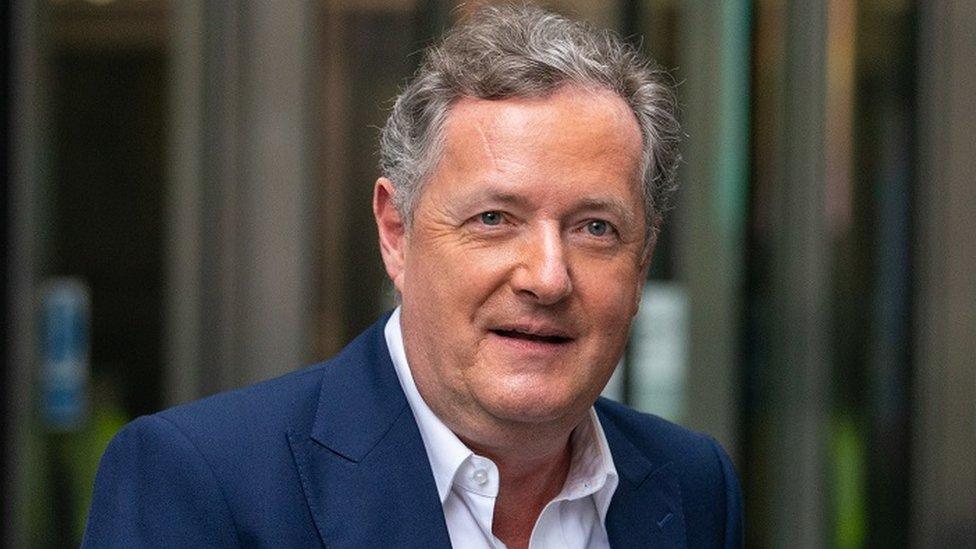
- Published7 June 2023
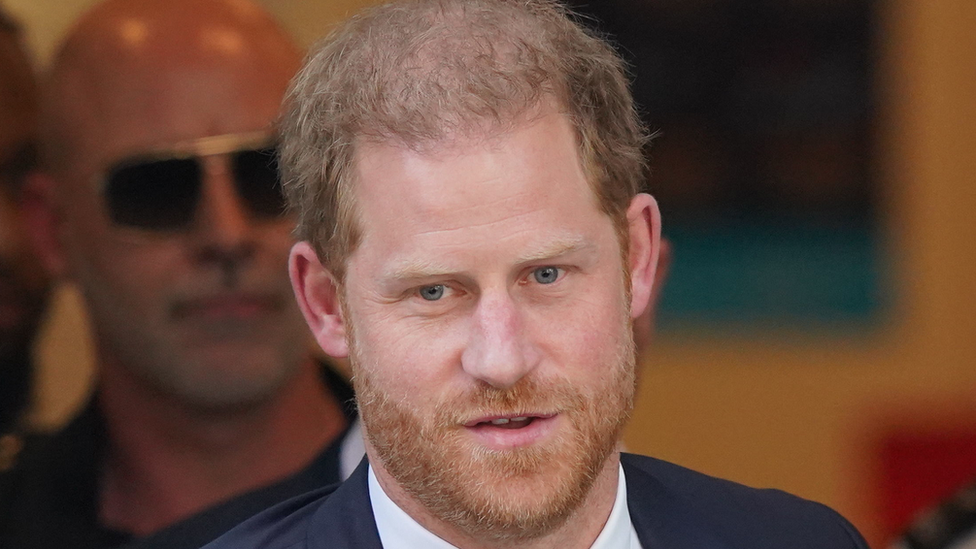
- Published14 June 2023
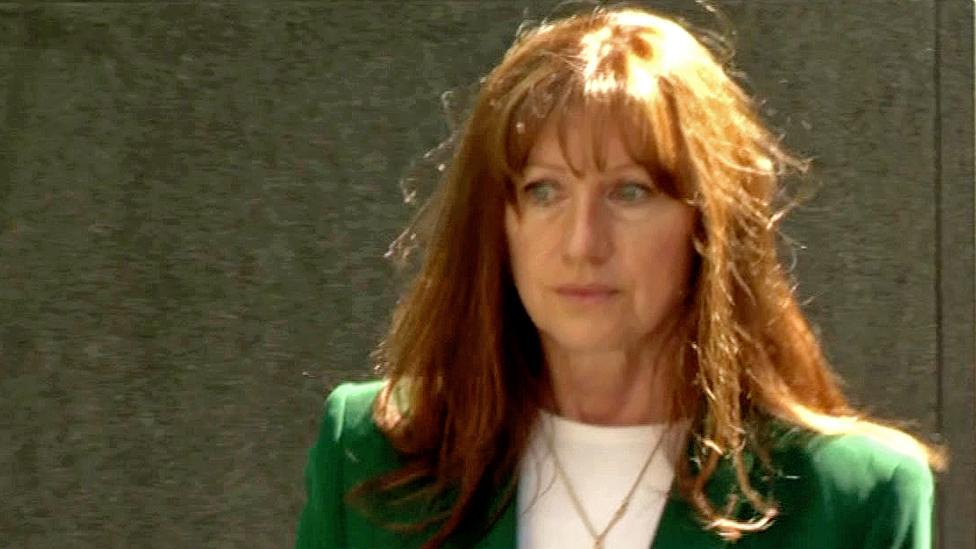
- Published12 June 2023
